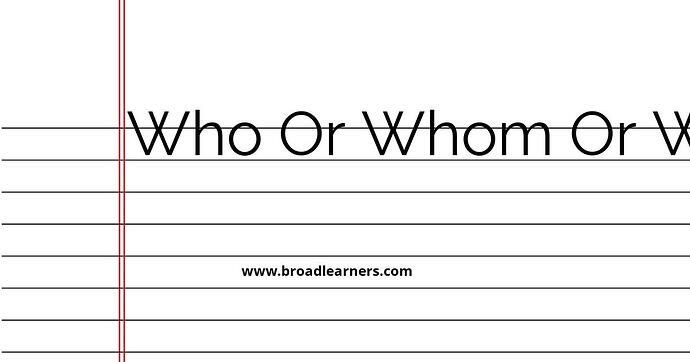'Who', 'whom', and 'whose' are commonly confused words in English grammar. Understanding the difference between 'who', 'whom', and 'whose' is important to use them correctly in written and spoken English.
'Who' and 'whom' are pronouns used to refer to people, while 'whose' is a possessive pronoun used to indicate ownership or belonging.
Let's take a closer look at the meanings and usage of 'who', 'whom', and 'whose'.
| 'Who' | 'Whom' | 'Whose' |
|---|---|---|
| The word 'who' is used as the subject of a sentence or clause. | The word 'whom' is used as the object of a verb or preposition. | The word 'whose' is used to indicate possession or ownership. |
|
|
|
To remember the difference between 'who' and 'whom', it can be helpful to remember that 'who' is used as the subject and 'whom' is used as the object. 'Whose' is used to indicate possession or ownership.
Here are some examples of correct usage:
- Who is going to the party? (asking about someone's plans)
- Whom did you see at the park? (referring to the person seen)
- Whose phone is ringing? (asking about ownership)
- I wonder whose idea it was to start this project. (indicating ownership)
Remembering the correct usage of 'who', 'whom', and 'whose' will improve your grammar and communication skills.
